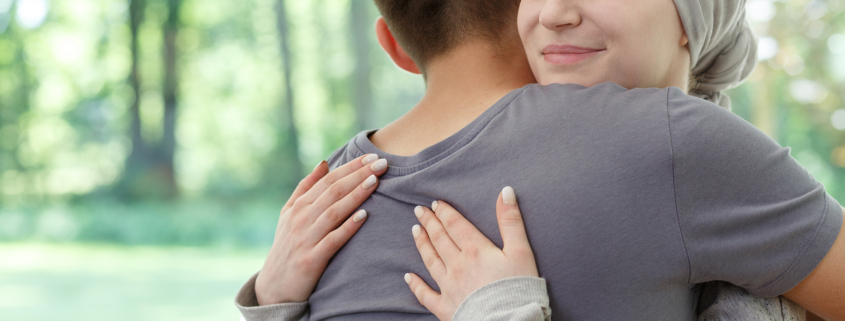What Can You Expect When A Course Of Cancer Treatment Ends?
Much of the focus of cancer care and the treatment pathway tends to focus on what people should expect just before and during their treatment.
This allows them to prepare themselves, understand what they should expect from their treatment, what they should pack for any hospital stays, arrange for additional support and explore their options when it comes to continuing to work during the treatment period.
However, cancer care starts before the first day of treatment, and does not end after the last dose of radiotherapy or chemotherapy is completed. Both are huge adjustments and it is perfectly normal to feel a mixture of emotions once a course of treatment is completed and the cancer is destroyed or in remission.
With that in mind, here are some experiences you can expect at the end of your cancer treatment and what support is available to help you navigate a new chapter in your life.
It Is Normal To Feel Uncertain
A lot of people have reported that they feel somewhat uncertain if not lost following the end of their cancer treatment, and this is completely understandable.
Many cancer treatments take several months if not years from initial diagnosis to the final step of treatment, during which time you will have established a new routine and set of contacts within your cancer team as well as with your wider support network.
Once you get used to your treatment and how it feels, it can be odd to move on to the next stage of your life.
The first few months after treatment ends is a time of transition, and it is perfectly normal to not feel ready to move on, which is why it is best to look at the first few follow-up appointments as part of the treatment and keep in touch with your support network and your cancer team.
It Will Take Time To Recover
The end of cancer treatment is less of a sudden stop and more of a gradual slowdown, as there is a period of recovery following treatment that does take some time to get used to both physically and emotionally.
Your cancer team will let you know of the physical changes you may experience and what to expect from your recovery process. They will be there to provide support, refer you for additional treatment if required and provide advice on how best to manage your recovery.
Your support network that has been there during your treatment will also be there for your recovery as well. Unless they have also undergone cancer treatment or cared for someone who has, they may not realise what recovery and the end of treatment looks like and that you will still need support from them.
We believe that cancer care involves not only the primary treatment plan but everything else that helps improve physical health and mental well-being. This includes during the recovery process following treatment so there will always be professional support ready for you whenever you need it.
Follow-Ups Will Get Easier Over Time
Some cancer survivors have talked about “scanxiety” or a fear of tests following cancer treatment for fear that they might reveal that cancer has recurred.
This is a normal and common feeling, one that a cancer team will always be there to help with by providing facts, answering any questions you have and assuring you that they are always there to take care of you no matter what happens.
If you ever have a symptom that worries you, they will be there to provide advice about what you should expect and whether a particular sensation is a cause for further concern.
As you get used to how your body feels following treatment and with each passing follow-up appointment, that concern about recurrence will naturally reduce over time.
You Never Have To Suffer Alone
One of the most important aspects of the recovery process is that you should never have to feel like there is nobody you can talk to about your fears, concerns and frustrations. Beyond your support network and cancer team, there are a lot of services available, and the people who were there during treatment will be there for you now.
There are support groups, both in your local community and online who can provide support and a first-hand understanding of what it is like to go through cancer treatment, as well as therapists and counsellors who can help address any worries, anxiety or depression that has emerged.
There are a lot of services designed specifically for people going through the same or similar experiences to you, so you do not have to face this alone.


